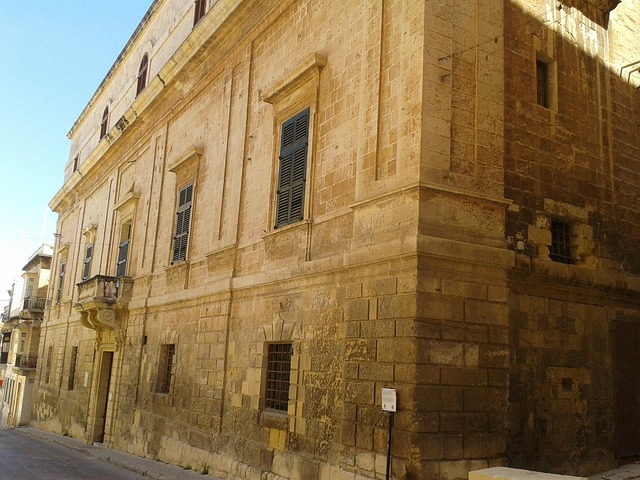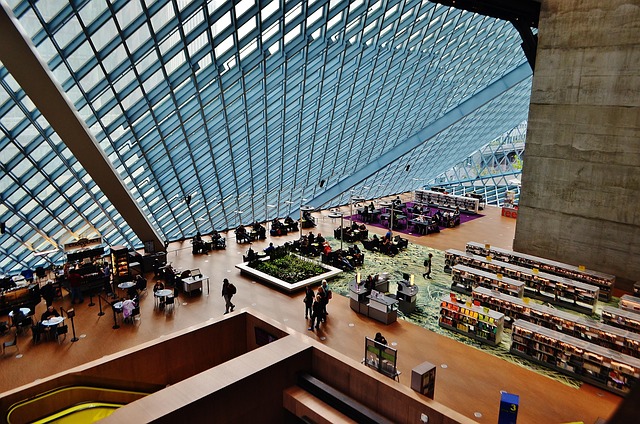Kari Lilja, TkT, Erikoistutkija; Sirpa Sandelin, TkT, Yliopettaja
English version: Click the link
Hmm, jaa, juu, ööhh. Joko se meni, loma meinaan. Pikkuhiljaa itse kukin yrittää palauttaa mieliin mihin tehtävät ennen lomaa jäivätkään. Näin etenkin hankkeissa. Kansainvälisissä hankkeissa työskenteleville loma voi toisaalta olla varsin katkonainen ja yllätyksiä täynnä, ja ensimmäinen loman jälkeinen kuukausi hiljainen, etenkin, jos mukana on keskieurooppalaisia kumppaneilta. Heillä kun lomakausi yleisesti on elokuu.

Itse pohdin lomani aikana muutamaan otteeseen koulutusta, sivistystä ja sitä, miksei niiden merkitystä yhteiskunnalle osata tai haluta tunnustaa. Syynä siihen ovat olleet koulutukseen ja siihen liittyviin julkisiin palveluihin kohdistuvat leikkaussuunnitelmat ja jo toteutetut leikkaukset eri maissa. Etenkin oikean laidan poliittisten toimijoiden käytös ja näkemykset saattavat tuntua jakomielisiltä (samaan aikaan halutaan lisätä korkeakoulututkintojen osuutta ja vähentää sivistyssektorin rahoitusta), mutta jos asiaan ottaa historiallista perspektiiviä, palaset loksahtavat paikoilleen.
Koulutus aina alkeellisen lukutaidon oppimisesta yliopisto-opintoihin asti oli pimeän keskiajan jälkeen pitkään katolisen kirkon hallussa. Kirkko kontrolloi sitä, ketkä saivat oppia, ja mitä, ja pyrki haalimaan parhaat lukijat helmoihinsa. Niitä, jotka menivät ahtaiden rajojen ulkopuolelle, sensuroitiin, julistettiin pannaan, vangittiin (esimerkiksi Galileo Galilei, ”se pyörii sittenkin”), kidutettiin ja poltettiin roviolla (Muiden muassa Giordano Bruno, joka esitti ajatuksen äärettömästä maailmankaikkeudesta). Oli vain se virallinen Ptolemaioksen maailmankuva ja oppi, joka hyväksyttiin, vaikka havainnot ympäristöstä osoittivat jotakin muuta. Pikkuhiljaa, protestanttisten liikkeiden syntymisen, uskonpuhdistuksen ja valistuksen ajan kautta paavit, kardinaalit ja piispat joutuivat myöntämään, että tieto ja usko ovat kaksi eri asiaa.

Myöhemmin samaa tiedon saannin rajoittamista ja vain omaa valtaa tukevan virallisen tiedon levittämistä ovat yrittäneet toteuttaa diktaattorit oikealla ja vasemmalla, Hitler ja Mussolini, Stalin ja Mao, vaihtelevalla menestyksellä. Ja sitä yrittävät parhaillaankin Putin ja Trump, monia pienempiä diktaattoreita ja diktaattorinnoja unohtamatta. Eikä ajatus viestinnän kontrolloinnista ja rajoittamisesta ole vieras yritysjohtajillekaan, pitäähän oman organisaation julkista kuvaa varjella. Valtiota ja vallan tavoittelua ajatellen puuttuminen koulujen, kirjastojen ja muiden kulttuuria ja yleissivistystä tukevien tahojen toimintaan on looginen alku. Mitä vähemmän ihmisellä on yleissivistystä, sitä vaikeampi hänen on suodattaa saamaansa tietoa, ja sitä helpompi häneen on istuttaa ideologista disinformaatiota. Täsmätietoa ja tutkintoja tarvitaan, mutta se ei saa vaarantaa valtaa pitävien asemaa tai tulevaisuuden suunnitelmia.
Samalla ihmisestä tulee nettihuijareiden ja tiedonkalastelijoiden otollinen uhri.
Valistuksen ajan ihanteisiin kuului yleissivistyksen jakaminen laajoille kansanosille. Tieto ei enää ollut pienen kansanosan privilegio, vaan lukutaidon edistämisellä ja muulla perusopetuksella sekä tiedon tarjoamisella kansan käyttöön julkisten kirjastojen välityksellä haluttiin lisätä koko kansan sivistyksen tasoa. Kaikkea ei tietenkään heti avattu kaikille, vaan päättäjät kantoivat huolta myös rahvaan ”moraalista” ja vahtivat enemmän tai vähemmän tarkkaan sitä, mitä oppeja ja kirjallisuutta etenkin työväestölle tarjottiin. Vastauksena tähän työväenliike etenkin alkuaikoina järjesti omaa – osin poliittisesti painottunutta – opetusta, lukupiirejä ja vastaavia aktiviteetteja omille kohderyhmilleen. Tämä taas kehitti kansalaisten kriittistä lukutaitoa ja lisäsi kirjallisuuden ja kirjastojen kysyntää.
Kirjasto oli kaikkien tiedonjanoisten keidas, jossa kohtasivat oppineet ja rahvas, käytäntö ja teoria, akateeminen maailma ja reaalimaailma. Toimiva kirjasto, jonne jokainen tunsi olevansa tervetullut, oli elinehto kaikelle sivistykselle. Henkilöt, jotka kirjastossa työskentelivät, olivat avainasemassa ennakkoluulottoman, ihmismyönteisen, avoimen ja sivistystä kaikin tavoin tukevan ilmapiirin luomisessa.

Parhaimmillaan Suomessa saattoi liki jokaisessa pienessäkin kylässä olla kansakoulun kirjaston lisäksi oma sivukirjasto tai jopa itsenäinen jonkun henkilön ylläpitämä kirjasto. Lukeminen oli arvostettua ajanvietettä, ja se arvostus ulottui myös koulunkäyntiin. Siinä, missä isoisä oli ajatellut lukemisen pilaavan hyvän työmiehen, isä uskoi lapsiensa koulunkäynnin mahdollistavan sosiaalisen nousun ja olevan hyväksi koko sukupolvelle.
Kunnes tulivat internet, sosiaaliset mediat, talouskriisit ja suorituskeskeisyys.
Nyt, kun edellä mainittu isä on isoisä, hänen lapsenlapsillaan ei ole aikaa lukea, ei ehkä paikkaa, jossa lukea, pian ei löydy kirjoja, joita lukea, ja motivaatiokin on tuhottu jo lapsena. Jopa digilukutaito tuntuu näillä diginatiiveilla olevan hukassa. Ja sitä jos mitä tarvitaan tässä keinoälyn älyttömässä maailmassa.
Onko peruskouluihin ja lukioihin tuotu kännykkäkielto askel parempaan? Aika näyttää. Ainakin ensivaikutelmat ovat positiivisia (YLE 14.8.2025): Oppilaat keskittyvät paremmin, kohtaavat toisensa ihmisinä, ja voivat jopa fyysisestikin paremmin. Tunnit ovat rauhoittuneet, keskeytykset vähentyneet ja oppilaat ovat aiempaa sosiaalisempia. Aikuisten pitää nyt vain olla ryhdikkäitä ja rohkeita.

Ehkä seuraava ”tekninen” vallankumous onkin inhimillisyyden vallankumous.
In English
Brain activity – on vacation? – 2025
Hmm, yeah, yep, uhh… Is it over? I mean vacation. Little by little, everyone is trying to remember what they had done with their tasks before the vacation. This is especially true in projects. For those working on international projects, vacation can be quite intermittent and full of surprises, and the first month after vacation can be quiet, especially if there are Central European partners involved. For them, the vacation period is generally August.

During my vacation, I reflected on education, civilization, and why their importance to society is not known or not wanted to be recognized. The reason for my thoughts has been the planned cuts to education and related public services and the cuts that have already been implemented in various countries. The behaviour and views of political actors on the right, in particular, may seem divisive (at the same time, they want to increase the share of higher education degrees and reduce funding for the education sector), but if you take a historical perspective, the pieces fall into place.
Education, from learning basic literacy to university studies, was for long time in the hands of the Catholic Church after the Dark Ages. The Church controlled who could learn and what and sought to attract the best readers to its fold. Those who went beyond its narrow boundaries were censored, declared to be heretics, imprisoned (for example, Galileo Galilei, “it still goes round”), tortured and burned at the stake (Giordano Bruno, among others, who proposed the idea of an infinite universe). There was only the official Ptolemaic worldview and doctrine that was accepted, even though observations from the environment showed something different. Gradually, through the rise of the Protestant movements, the Reformation, and the Enlightenment, popes, cardinals, and bishops were forced to admit that knowledge and faith were two different issues.

Later, dictators on the right and left, Hitler and Mussolini, Stalin and Mao, have tried to implement the same restriction of access to information and the dissemination of only official information that supports their own power, with varying success. And Putin and Trump are currently trying to do the same, not forgetting many smaller dictators and dictator-like figures. And the idea of controlling and restricting communication is not foreign to business leaders either, because, after all, one must protect the public image of one’s own organization. Considering the state and the pursuit of power, interfering in the activities of schools, libraries and other bodies that support culture and general knowledge, is a logical start. The less general knowledge a person has, the more difficult it is for them to filter the information they receive, and the easier it is to instill ideological disinformation in them. Accurate information and degrees are needed, but they must not endanger the position or future plans of those in power.
At the same time, people become easy victims of online scammers and phishers.
The ideals of the Enlightenment included the distribution of general knowledge to large sections of the population. Knowledge was no longer the privilege of a small section of the population, but by promoting literacy and other basic education and by providing information to the public through public libraries, the aim was to increase the level of education of the entire population. Of course, not everything was immediately opened to everyone, but decision-makers also cared about the “morality” of the people and monitored more or less closely what doctrines and literature were offered, especially to the working class. In response to this, the labour movement, especially in the early days, organized its own – partly politically oriented – education, reading circles and similar activities for its own target groups. This in turn developed the critical literacy of citizens and increased the demand for literature and libraries.
The library was an oasis for all those thirsting for knowledge, where scholars and the people, practice and theory, the academic world and the real world met. A functioning library, where everyone felt welcome, was a vital condition for all civilization. The people who worked in the library played a key role in creating an atmosphere that was open-minded, pro-people, open and supportive of civilization in every way.

At its best, almost every small village in Finland (Those were the days, my dear) could have its own branch library or even an independent library maintained by someone in addition to the elementary school library. Reading was a valued pastime, and that esteem also extended to schooling. Where grandfather had thought that reading ruined a good worker, father believed that his children’s schooling would enable social advancement and be good for the entire generation.
Until the internet, social media, economic crises and performance-oriented behaviour came along.
Now that the aforementioned father is a grandfather, his grandchildren have no time to read, perhaps no place to read, soon they won’t find books to read, and their motivation has been destroyed even as children. Even digital literacy seems to be lost among these digital natives. And that’s what’s needed in this crazy world of artificial intelligence.
Is the mobile phone ban in comprehensive schools and secondary schools in Finland a step towards the better? Time will tell. At least the first impressions are positive (YLE 14.8.2025): Students are concentrating better, meeting each other as people, and even feeling better physically. Classes have calmed down, interruptions have decreased, and students are more social than before. Adults now just need to be upright and courageous.

Perhaps the next “technical” revolution will be a revolution in humanity.
Artikkeli on kirjoitettu Euroopan unionin Erasmus+-ohjelman rahoittamien WIN4SMEs- ja BA&VET-hankkeiden, Interreg Central Baltic – ohjelman rahoittaman Easy Energy -hankkeen ja Intereg BSR -ohjelman rahoittaman Wood4Youth-hankkeen puitteissa. Vastuu artikkelissa esitetyistä näkemyksistä on yksinomaan kirjoittajilla.
This article has been written in the framework of the projects Win4SMEs and BA&VET funded by Erasmus+ programme, project Easy Energy funded by Interreg Central Baltic programme, and project Wood4Youth funded by the Interreg BSR programme of the European Union. The sole responsibility for the views expressed in this article lies with the authors.

